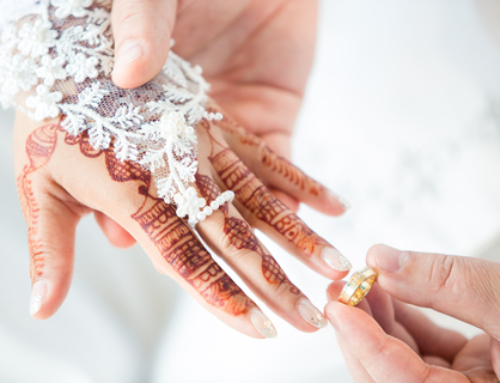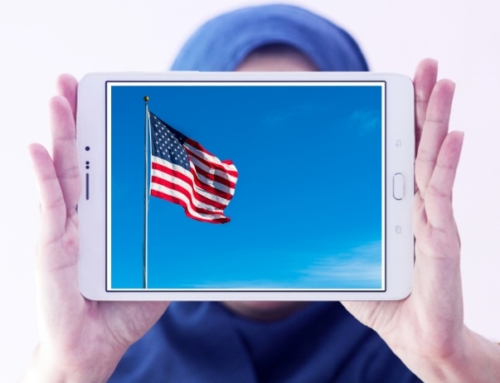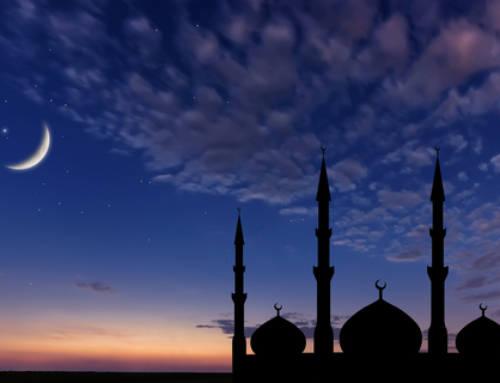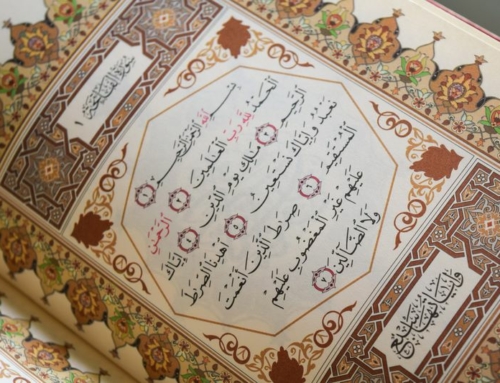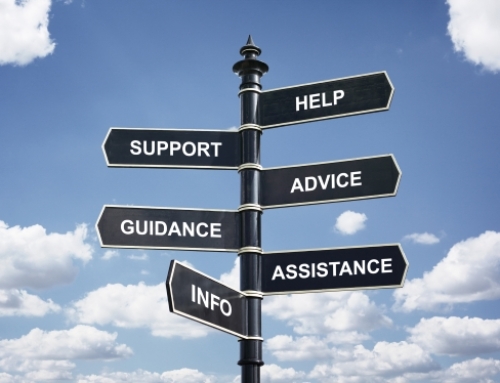By Laura El Alam
Sometimes people feel their hearts are drawn to Islam, but they hesitate to call themselves a Muslim. Perhaps they are afraid that they don’t know enough about the faith yet, or that they’re not the “right kind” of a person to fit the description. Maybe they’re worried that converting to Islam will be a complicated process, or they’re wondering at what point the feeling in their heart makes them an “official” Muslim.
How do I know if I’m actually a Muslim?
The basic criteria for being a Muslim is making shahada: proclaiming that there is no god but Allah, and Muhammad is His messenger. Included in this testimony is the implied belief in God’s revealed books (such as the Quran, Torah, and Gospel), angels, prophets (like Jesus, Moses, and Noah), the Day of Judgement, and divine decree. Once you believe this fully and testify to it with conviction, you are a Muslim in the eyes of God. Your past sins are all forgiven, and your new spiritual journey begins.
If you would like to be recognized as part of the Muslim community, it is a good idea to make the shahada in front of at least two Muslim witnesses, or alternately, the imam (leader) of a mosque.
After you have taken the first crucial step, you have the rest of your life to hone your Islamic personality, God willing. This requires learning the rules and regulations of the faith and adopting a mindset that is fixed on obeying the Creator. No one on this earth is a perfect Muslim, so every single believer –convert or not – must engage in a lifelong journey of improvement, repentance, learning, and worship.
What if I don’t speak Arabic?
You can be a Muslim even if you don’t speak Arabic. God understands all languages. Having said that, Arabic is the language that the Quran was revealed in, and it is undoubtedly an important part of an Islamic education. For instance, Muslims must say their prayers in Arabic, and eventually every Muslim needs to learn at least some to perform the prayer.
How can I pray if I don’t know Arabic?
Learning all of the steps and words of the five daily prayers can be challenging, at first. In the early days you will likely need to read a transliteration of the Arabic words in your native language. Having a copy of the transliteration (a representation of Arabic letters and sounds in your native alphabet) plus the translation of the meaning is helpful. The guidance of a mentor can also be extremely useful. If in-person help is not available, there are videos online that teach the pronunciation and meaning of the words of the prayers.
Remember, God sees your efforts and rewards you for them generously. The Prophet Muhammad said:
Allah Almighty says: “Whoever draws close to Me by the length of a hand, I will draw close to him by the length of an arm. Whoever draws close to Me by the length of an arm, I will draw close to him by the length of a fathom. Whoever comes to Me walking, I will come to him running. Whoever meets Me with enough sins to fill the earth, not associating any partners with Me, I will meet him with as much forgiveness.”
If you practice saying (and/or reading) your prayers in Arabic five times a day, every day, you will eventually memorize the words, and they will become second nature to you. With time you will likely memorize some chapters of the Quran in Arabic and learn more vocabulary words that are relevant to Islam. You might eventually decide to learn to read and write Arabic fluently . . . but do not overwhelm yourself at first! Your commitment to improving little by little should be your primary focus in the early days.
Also, while the five daily prayers are a pillar of Islam and therefore very important, it does not make you a disbeliever if you skip some prayers, accidentally make mistakes while performing them, or even give up praying for a while. If you ever find yourself getting off track in your practice of Islam, make a U-turn and come back to Allah. He is always waiting for you eagerly.
What if I don’t wear hijab?
Sometimes a woman who embraces Islam does not feel ready to wear a headscarf (also called hijab or a khimar). While it is important to adhere to the Islamic dress code, postponing this act of worship does not take someone out of the fold of Islam. So, you are a Muslim even if you do not cover your hair, but keep in mind that it is an obligation, so your goal should be to wear it as soon as possible.
New converts who don’t feel ready to wear hijab should focus on adhering to the five pillars of the faith: shahada (testimony of faith), salat (five daily prayers) sawm (fasting during Ramadan), zakat (charity), and hajj (pilgrimage to Makkah at least once in a lifetime for those who are able). In addition, they should spend time learning about Allah and the Prophet (peace and blessings be upon him). The more they know and love their Creator and His messenger, the more they will want to practice Islam wholeheartedly.
Islam is a faith of modesty, and all believers should adopt a mindset of wholesomeness and purity. If you do not feel ready to wear a headscarf yet in public, you may want to start by wearing it when you pray at home and when you go to the mosque. Outside your home, you can wear clothes that are loose, opaque, and cover your arms, legs, and chest.
In a world that pressures women to accentuate and flaunt their beauty, Islam commands them to privatize their bodies. Many women find that modest dress is actually liberating because they do not feel as objectified by men, nor as concerned or dissatisfied with their physical appearance. Whether hijab comes easily to you or not, remember that every step you take towards modesty will get you closer to God.
What if I have bad habits?
Humans are imperfect, and the One who created us knows this perfectly well. Once you become a Muslim, you will probably realize that some of the activities you previously enjoyed are not appropriate to your new Islamic lifestyle. Some things may be difficult to give up, and others might even be addictions.
Don’t despair, even if you have a mountain of bad habits to break. Make a sincere effort to improve bit by bit. Envision your clean slate – your beautiful, purified soul– that is a gift from Allah to each new convert. Imagine how you would love to face Allah on Judgement Day with such an unblemished record. As you learn about Allah, His magnificent attributes, and how to grow closer to Him, your priorities will naturally shift. Many of your old habits will become distasteful to you because of your love for Islam.
For those habits that are hardest to break, put sincere prayer and effort into overcoming them, one at a time. Ask God for His help. Know that He is the Helping Friend, the Most Forgiving, and the Most Appreciative. He will always assist us when we ask. He will accept sincere repentance and reward us when we strive to improve for His sake.
What if I don’t fit in with the Muslim community?
Sometimes converts visit a mosque or an Islamic gathering and feel like they don’t belong. Maybe the majority of the congregants come from a common region or speak another language. They might dress differently, have distinctive mannerisms, and seem more like “authentic” Muslims, making the convert wonder whether he or she really belongs there. Sadly, sometimes certain groups are not very inclusive of newcomers or outsiders. If this happens, don’t let it make you feel like you’re not a good or a true Muslim! Allah loves you so much that He guided you to His religion and gave you the opportunity to earn Paradise. Keep in mind that no matter how people might act, no culture or race has a monopoly on Islam. In his final sermon, the Prophet Muhammad said:
All mankind is from Adam and Eve, an Arab has no superiority over a non-Arab nor a non-Arab has any superiority over an Arab; also a White has no superiority over a Black nor a Black has any superiority over a White except by piety and good action. Learn that every Muslim is a brother to every Muslim and that the Muslims constitute one brotherhood.
New Muslims who are sincere and striving are just as worthy as “born Muslims,” no matter where they came from or what they look like. In the end, Allah will judge us all based on our actions and intentions, not on our nationality, skin color, family history, or language.
If you don’t feel welcome or comfortable in a particular mosque, try visiting another one. Ask the mosque leaders if there are any classes or groups for converts, or if they can pair you up with a mentor. With a little perseverance you will hopefully find your niche in a Muslim community, God willing.
What if there’s still a lot I don’t know?
For a new convert, learning all the rules and regulations of Islam on top of the new vocabulary and lifestyle is a huge task! Developing a strong understanding of Islam definitely doesn’t happen overnight and will, in fact, probably take years. Sometimes people question and test converts, either trying to poke holes in their conviction, or attempting to show them how little they know. This is an unfair and unhelpful tactic, but it still happens now and then, with the result that the new convert might feel inadequate or insecure in their faith.
The fact is that even the wisest Islamic scholars will admit that they still have a lot to learn. No one is ever perfect in their knowledge of Islam. And there is no adherent of any religion who can truthfully claim that they know everything about their faith. We are all on a journey of learning and improving. People who try to “catch you out” on your lack of knowledge have an unkind agenda and should not be taken seriously.
If someone asks you a question that you don’t know the answer to, you do not have to panic or feel embarrassed. Simply admit that you don’t know yet. If it’s a topic that seems important to you, add it to your list of things to study and learn about. If a Muslim speaks about a topic you don’t understand, or uses vocabulary that is unfamiliar to you, feel free to ask for clarification. Most people are happy to explain and did not intend to exclude or embarrass you.
In conclusion, remember this:
If you love Allah and His messenger, you are a Muslim! If you are committed to growth, improvement, and sincere worship, then you are beloved by God and on the right path. You do not need to pass a test, win people’s approval, or prove yourself to anyone. Islam is a gift that is available to everyone. Each and every human has a direct connection with our Creator that no one can take away. God will judge us all on our sincerity and actions, not our background, ethnicity, native language, race, or upbringing. If you feel guided to Islam and believe in Allah and His messenger, you can call yourself a Muslim unapologetically and confidently. Welcome to the family!




